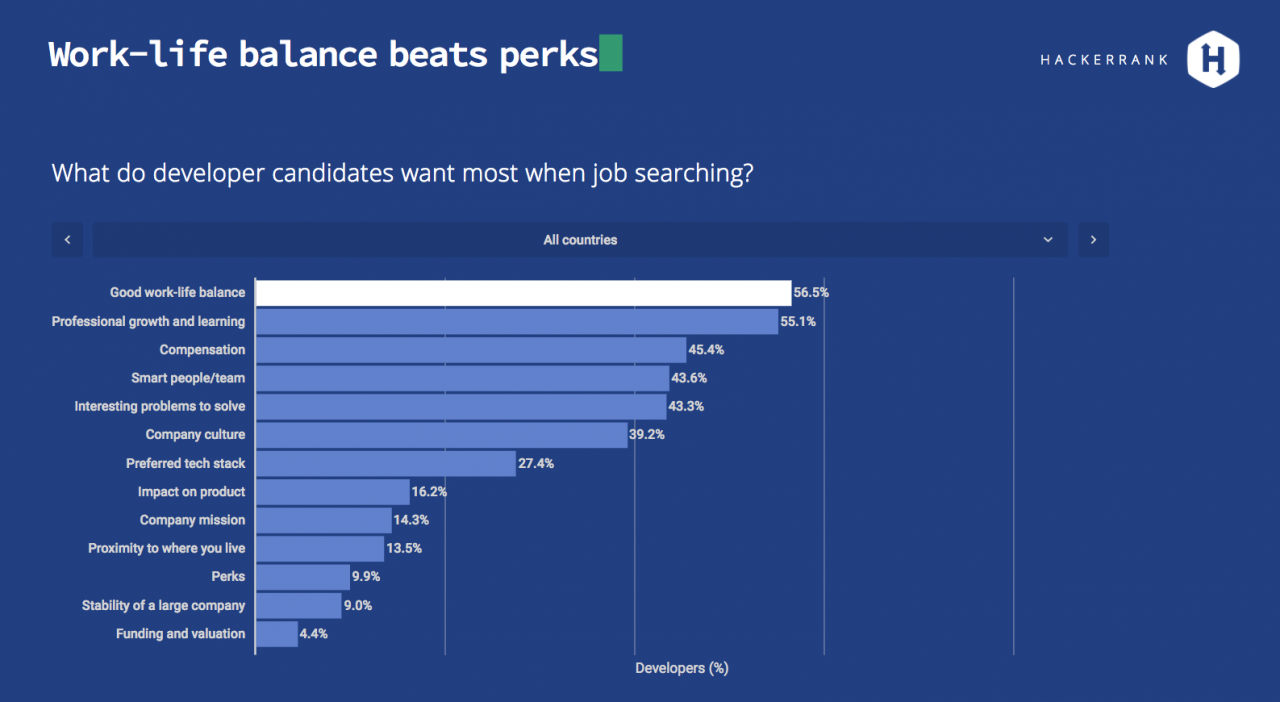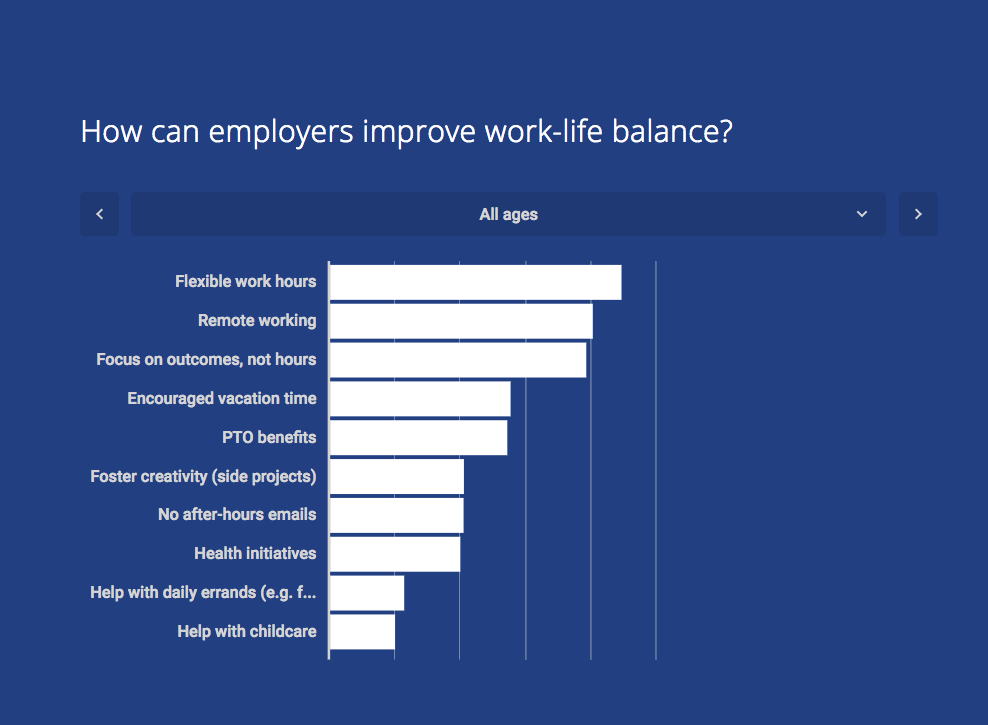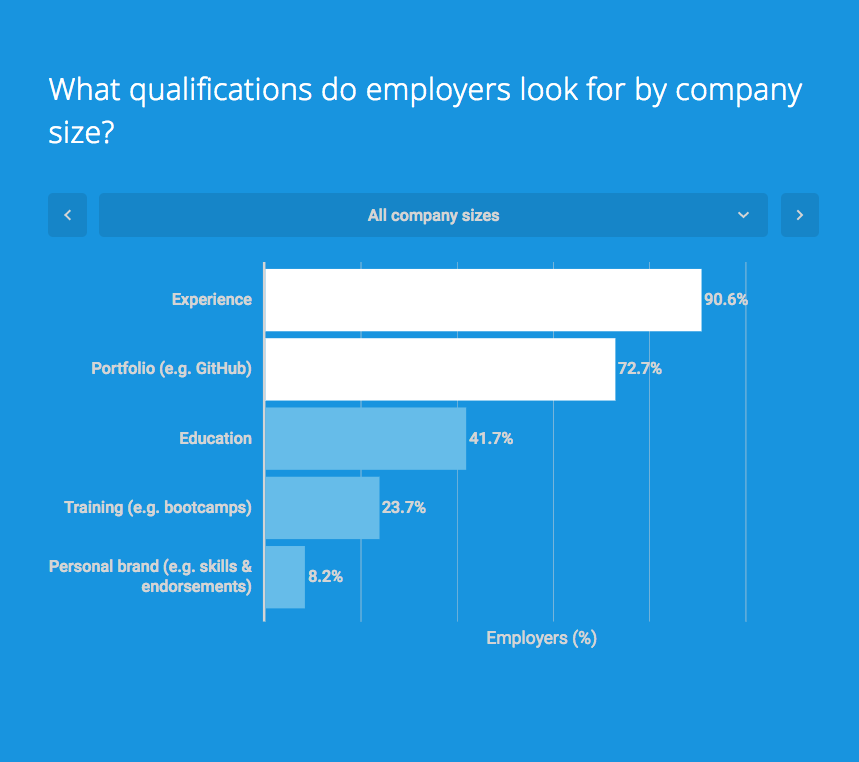
HR Technologist, February 21, 2018
Abhijit Tamhane HackerRank, Vice President of Product Management
Abhijit Tamhane is the vice president of product management and technology leader at HackerRank, where he’s on a mission to build amazing products that match every developer to the right job. Prior to that, he built and launched the first version of Tringo (Android), an international calling app. He’s also built and grown technology teams at Target and Salesforce.
As the demand for software engineers has spiked, there’s been a shift in power between the recruiter and candidate relationship. Given the growing competition for top talent, skilled developers today can be selective of the jobs they choose.
This means hiring managers and recruiters need to have a deeper understanding of what developers are interested in, how they learn, what motivates them and what they look for in a job so that they can attract technical talent. To surface, analyze and share information on the changing landscape of software development, we just launched our first ever survey of more than 3.2 million developers that are part of the HackerRank community to hone their skills. You can read the full report here. Over 39,000 developers responded, and their intimations show just how big of a gap there is today between what developers want and what hiring managers tout on their careers pages and job descriptions. The best hiring managers and recruiters today will refocus their strategy to truly understand the developer community.
Work-Life Balance & Learning Beats Perks

If you want to win developer talent today, the best hiring managers will communicate two things: Flexible work schedules and ability to grow and learn . Developers value these more than perks, stock options, and company’s mission statements, which, these days, are expected as part of any technology job. If you really want to stand out, focusing on the flexibility of your startup would help you win tech talent.
Of course, work-life balance can mean different things to different people. So, we dug deeper and followed up with developers on what this really means. It turns out, developers crave a flexible work schedule, ability to work remotely, and love employers who value output as opposed to the number of hours worked.

Developers deprioritized help with daily errands (like onsite laundry) and health initiatives for flexible work hours. Ultimately, developers want to work at a place where they can learn new skills, take on new challenges, and solve new problems. So, be sure to give them those opportunities if you want to not only attract them but also keep them on board.
Developers are Not Their Resumes
One of the most important business lessons to grasp about our survey is that developers are not their resumes. Traditionally, hiring and HR work has been about keywords. Our survey reveals that hiring managers, more often than not, care about experience and accomplishments as opposed to education, training certificates, and skill endorsements.

Hiring managers or recruiters take thousands of resumes and remove all of those that do not include the desired keywords. It’s the only way today to parse through high volumes of resumes. They then go about the difficult task of assessing the skills of those remaining developers, something that is almost impossible to do reliably at scale without outside help. When asked what the biggest hiring challenge is, the same hiring managers said assessing skill is their number one problem — as opposed to lack of talent. Meanwhile, only 55% of developers said resumes were a good reflection of their abilities.
In the end, all of this work is largely ignored by the top level executives in the hiring process, anyway. It turns out that the sharpest C-levels, founders, and VPs in the industry are not hiring through resumes, they’re hiring through GitHub . As a storage of real-world projects, GitHub means more to these executives than a resume or even experience. Now, this could very easily be because C-levels and their ilk typically receive a pre-screened set of resumes, but even if this is the case, this means proven skill and contributions are more meaningful than perfecting the resume.
To Sum it All Up
As the competition for technical talent grows in an increasingly software-centric world, it’s going to be more important than ever for recruiters to rethink the traditional attraction and retention strategy. The more companies build a talent brand that’s specific to developers, the more they’ll be able to differentiate themselves.